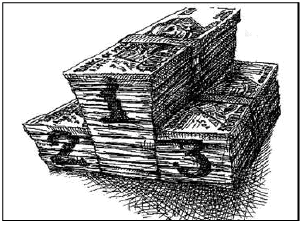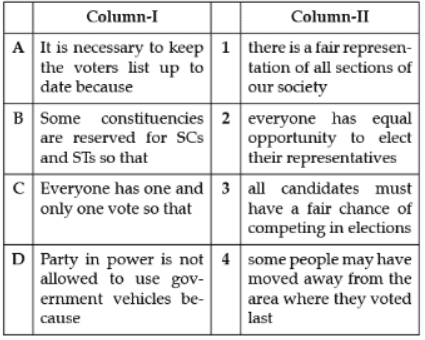Test: Electoral Politics (Term II)- 2 - Class 9 MCQ
10 Questions MCQ Test - Test: Electoral Politics (Term II)- 2
Assertion (A) : For Lok Sabha elections, the country is divided into 543 constituencies.
Reason (r) : The representative elected from each constituency is called a Member of Parliament or an MP.
Study the given picture carefully:

This picture is related to which of the following?

According to our election law, no party or candidate can ______.
In India, Lok Sabha and Vidhan Sabha elections are held regularly after every ______.
Match the following Column I with Column II:

State whether True or False:
The process of elections in democratic countries is similar to that of non-democratic countries.
State whether True or False:
All political parties need to follow a Code of Conduct set up by the Election Commission of India.
State whether True or False:
The people’s participation can be measured through the voter turnout on polling day.
Elections held after the term of 5 years of Lok Sabha are called ______.














